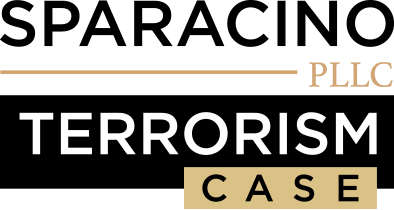by Jason Motlagh The $300 million Kabul-Kandahar road was meant to be a symbol of the new Afghanistan. Today it ...

The Case Against the Corporations
Our clients are suing six large multinational corporations, most of which have offices in the United States, for allegedly making “protection payments” to terrorists in Afghanistan or turning a blind eye as others made “protection payments” on their behalf. These terrorists included the Taliban, Haqqani Network, Pakistani Taliban, and their allies, all of which we believe worked as part of an Al-Qaeda-led terrorist syndicate that planned and authorized terrorist violence throughout Afghanistan.
As alleged, this scheme – aimed at increasing the corporations’ profits – provided funding for the Taliban, Haqqani Network, and their radical Islamic terrorist allies in Afghanistan and Pakistan.
For the case against the corporations, we represent, or seek to represent, Americans who were seriously physically injured, or whose loved ones were seriously physically injured or killed, in terrorist attacks in Afghanistan that took place between June 1, 2010 and December 31, 2017. As alleged in the Anti-Terrorism Act complaint, we believe that the terrorists were supported by the defendants’ “protection payments.”
As alleged in the Anti-Terrorism Act complaint, the Taliban, Haqqani Network, and their radical Islamic terrorist allies in Afghanistan and Pakistan operated a mafia-like terrorist and criminal syndicate, using “protection payments” from corrupt multinational corporations to fund terrorist violence in Afghanistan. Despite the well-known and well-documented connection between “protection payments” and anti-American terrorism in Afghanistan, our clients’ complaint alleges that large corporations, mostly operating in the United States, made “protection payments” to the terrorists to increase their own corporations’ profits. As alleged, the terrorists used these protection payments to fund attacks against Americans. Our complaint alleges that at least one defendant continues to make protection payments to this day to terrorist groups that continue to threaten Americans in Afghanistan.
Our Anti-Terrorism Act case was filed on December 27, 2019, on behalf of 385 Americans, including veterans, their family members, and the survivors of U.S. military and civilian personnel injured or killed in terrorist attacks in Afghanistan.
Our clients’ complaint alleges that the defendants made “protection payments” – or turned a blind eye to them – in Afghanistan since they began doing business in the country, and in doing so have engaged in fraud on the U.S. taxpayer because the U.S. government did not hire them to pay off the Taliban. Notably, many of the defendants we have sued have admitted fraud in the past, paid millions of dollars to settle fraud allegations, or have been credibly accused of fraud or corruption by a third party.
The defendants being sued are the parent companies and/or subsidiaries of DAI Global, G4S, Janus Global Operations, the Louis Berger Group, Black & Veatch, and MTN Group.
Each defendant is alleged to have made “protection payments” to terrorists in Afghanistan or turned a blind eye when such payments were made on their behalf. We believe that the evidence will show that by making “protection payments” to the Taliban, the defendants knew or recklessly disregarded that their corrupt payments would help fund attacks against Americans in Afghanistan.
The Case Against Iran
Our clients are suing the government of the Islamic Republic of Iran for providing material support to Al-Qaeda, the Taliban, the Haqqani Network, and their radical terrorist allies in Afghanistan. As alleged in the complaint, Iran provided material support to nearly every key member of the Al-Qaeda-led terrorist syndicate operating in Afghanistan and Pakistan, including the Taliban and Haqqani Network.
Osama bin Laden himself recognized Iran’s key role, writing in a letter (later captured by the SEALs), that “Iran” was Al-Qaeda’s “main artery for funds, personnel, and communication.” Under the terms of a truce between Iran and Al-Qaeda, Iran provided a critical safe-haven and logistical hub for Al-Qaeda by opening certain parts of Iranian territory, including the city of Mashhad, to Al-Qaeda, in addition to financial and logistical support for Al-Qaeda operatives fleeing Coalition forces after 9/11.
For the case against Iran, we represent, or seek to represent, Americans who were seriously physically injured, or whose loved ones were seriously physically injured or killed, in terrorist attacks in Afghanistan that took place between January 1, 2007, and the present. As alleged in the complaint against Iran, we believe that Iran provided material support to Al-Qaeda, the Taliban, the Haqqani Network, and their allies.
Our Iran case was filed on December 27, 2019, on behalf of 503 Americans, including veterans, their family members, and the survivors of U.S. military and civilian personnel injured or killed in terrorist attacks in Afghanistan.
Our clients’ complaint alleges, as bin Laden himself wrote, that Iran served as Al-Qaeda’s “main artery for funds, personnel, and communication,” and that Iran also provided weapons, funding, training, and logistical support to the Taliban, Haqqani Network, and certain other terrorist groups operating in Afghanistan – all for the shared purpose of killing or injuring as many Americans in Afghanistan as possible. Our complaint alleges that Iran followed the same approach in both Iraq and Afghanistan: provide material support, including weapons, funding, and training, to any terrorist group – regardless of ideology – that agrees to attack Americans and avoid attacking Iran or Iranian interests. The Taliban, like other terrorist groups in Iraq such as Jaysh al-Mahdi, served to advance the Iranian agenda of inflicting mass casualties on Americans overseas to push the U.S. out of countries bordering Iran.
The defendant being sued is the government of the Islamic Republic of Iran. No other defendants (governments or corporations) are being sued in the Iran case.
We believe that the evidence will show that by providing weapons, funding, training, and logistical support to Al-Qaeda, the Taliban, the Haqqani Network, and certain terrorist allies, Iran intentionally supported attacks against Americans in Afghanistan.


